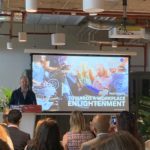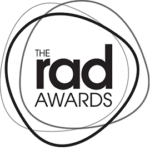
The Humans are Coming
Last month, I had the opportunity to attend ‘The Future of Work: The Humans are Coming’ – an event hosted by Minds@Work in HKX – our London office. Minds@Work are a movement dedicated to eradicating the stigma of mental illness and creating workplaces that are life-enhancing, so there was no doubt this was going to be an insightful evening.
Perspectives came from speakers including:
- Mo Gawdat. – formerly Chief Business Officer for Google X, now author and leader of #OneBillionHappy movement
- Magdalena Bak Maier – neuroscientist, Ted speaker and author of two books on productivity and the heart/mind connection
- Gethin Nadin – bestselling author of “A World of Good”, employee engagement expert, director at Benefex
- Phoebe Tickell – renegade scientist creating decentralised, non-hierarchical and participatory organisational cultures
- Nic Marks – Ted speaker with over 2m views, founder of employee happiness measurement software “Friday“
Quite the line up! So it’s been a challenge to pick out a few key takeaways, but here we go.
- Making work a fun and happy place is simply about changing our mindsets, not policies.
It’s purely our own thoughts that determine whether we are happy or unhappy. The world around us doesn’t change, in reality, the only thing that changes is the state of our minds. So if we spend time identifying the small, simple things that make us happy and focus our energies on these, we can overcome our negative thoughts, and become happier leaders. And implementing this mindset can ripple through into our teams and make for a far more positive workplace.
2. Events vs Expectations.
When the events of life meet our expectations, we are happy, because life seems to be going our way. So if we truly embrace transparency – are honest about our workloads, priorities, and build realistic expectations for our colleagues – we can keep our teams happy too.
3. Invest in emotional connections at work.
Emotional connections are key to feeling comfortable in bringing your whole self to work – both in heart and in mind. And when our logical and emotional systems align, that is when we make our best decisions and do our most extraordinary work. So, invest in relationships with your employees and colleagues – because the cultures we want to be a part of, and stay a part of, are those that allow us to be integrated humans.
4. In a world where everything is personalised, why shouldn’t the employee experience follow suit?
The time has come to start trusting in our employees from the outset (no probation periods!), investing in individuals and making time for personalised experiences in order to keep up with the future of work. Because in a world where everything is personalised, why shouldn’t the employee experience follow suit?
5. Embrace creativity by shifting away from hierarchical cultures
It’s not just millennials that are striving for a meaningful purpose in their work, beyond financial success. It’s something we all want. So how do we achieve it?
We need to step away from the hierarchical cultures we are used to, and welcome horizontal, participatory environments where we rotate the decision making, continuously switch our meeting facilitators and share ideas. This will create environments that are far more inclusive; where brain power exceeds, humans thrive and businesses benefit from the collective intelligence of all their people.
6. Our emotions are the core of who we are, and AI can never change that.
AI, robots and computers can never truly feel what humans can feel, so they’re not something to be threatened by. The rapid developments of AI are what will ultimately take the pressure off us, and pick up some of the slack in order to give us the time to invest in our emotions and working relationships. And that is how we will start building intelligently happy organisations.
So to conclude, what I learnt at The Future of Work: The Humans are Coming, is that the future of work is not to be feared. It will require a shift in our mindsets, but once that shift takes place, it will result in far more positive employee experiences for us all – and likely see us making our livings at workplaces that make time for supportive human relationships to develop in teams, where the jobs are flexible by design, so people can use all their unique strengths, and where trust, mutual respect and empathy are rife. In short, the future of work is a future where workplaces will actually, enhance our wellbeing, and we will all find a meaningful purpose in our work.
Hannah Reeve, Junior Marketing Manager
Image Credit – Minds@Work
#meaningful work changing world of work future of work ai the humans are coming employee experience wellbeing






Comments are closed.